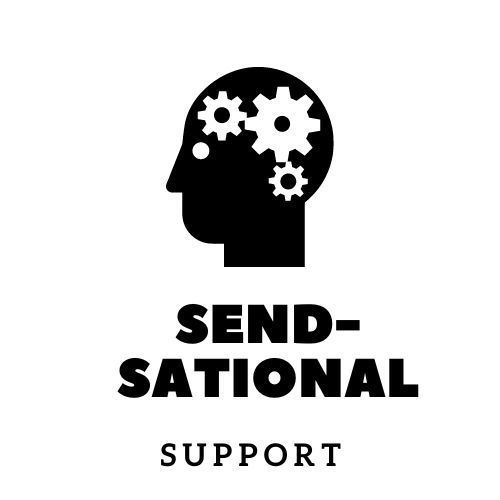Inclusion: Actions Speak Louder Than Words
Tangible Actions Truly Make a Difference

Inclusion is a term that has gained significant traction in the field of education, and rightfully so. It represents an admirable goal—an aspiration to create environments where every individual, regardless of their abilities or differences, feels valued and welcomed. In discussions, conferences, and policy documents, we often hear the resounding call for inclusion. However, as the saying goes, "Actions speak louder than words." In this blog, we explore the idea that while inclusion is talked about as if it's a goal, it's the tangible actions we take that truly make a difference.
Inclusion, as a concept, is beautifully simple in its essence: it's about embracing diversity and ensuring that no one is left behind. Yet, in practice, achieving this goal can be complex and challenging. It requires a commitment that goes beyond rhetoric. Here are some key points to consider:
1. The Power of Policy and Legislation
Talking about inclusion is often accompanied by discussions of policies and legislation aimed at promoting it. While these are essential steps, they must be followed by real implementation and enforcement. Policies alone cannot create inclusive environments; they provide the framework, but it's the actions of educators, administrators, and institutions that bring them to life.
2. Cultivating Inclusive Mindsets
Inclusion is not just a checklist of accommodations; it's a mindset. It's about seeing each child as an individual with unique needs and strengths. Discussions on inclusion must focus on changing mindsets, fostering empathy, and promoting an understanding that every child has the right to an education tailored to their needs.
3. The Role of Educators
Early years managers and educators play a vital role in turning inclusion into a reality. They are on the front lines, working directly with children. While they may attend workshops and seminars on inclusion, it's how they implement what they've learned in their classrooms that truly matters. Creating an inclusive atmosphere requires dedication, creativity, and adaptability.
4. Collaboration and Parental Involvement
Inclusion extends beyond the classroom. It involves working closely with parents and guardians to ensure that the support provided is consistent across home and school environments. Encouraging active parental involvement and open communication is an action that can lead to meaningful inclusion.
5. Embracing Diversity
Inclusion is not limited to children with special educational needs. It encompasses all forms of diversity, including cultural, linguistic, and socio-economic differences. True inclusion means celebrating this diversity and leveraging it as a source of strength.
6. Measuring Progress
Inclusion isn't a static achievement; it's an ongoing journey. Regular assessment and reflection on the effectiveness of inclusion practices are crucial. This means collecting data, seeking feedback, and making necessary adjustments to ensure that the talk of inclusion translates into meaningful change.
In conclusion, it's vital to recognise that while discussing inclusion is a necessary starting point, it's the actions we take that determine its success. Inclusion is not a box to tick; it's a continuous commitment to creating environments where every child can thrive. Early years managers and educators in the UK, like yourself, have the opportunity to lead by example and inspire a culture of inclusion through their actions. In the end, it's these actions that truly speak volumes and make a lasting impact on the lives of children with special educational needs and disabilities.










